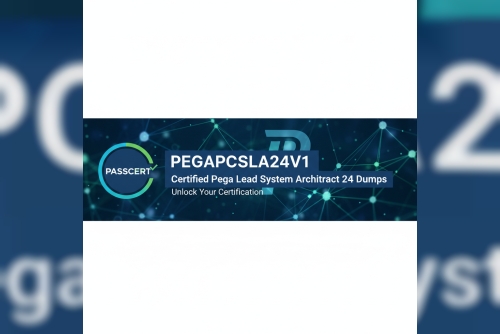In the world of manufacturing—particularly in sectors like pharmaceuticals, cosmetics, food, and medical devices—quality and safety are non-negotiable. Consumers trust that the products they use are safe, effective, and made under hygienic conditions. This is where the GMP Certificate comes in. GMP, or Good Manufacturing Practices, is a globally recognized system that ensures products are consistently produced and controlled according to established quality standards.
What is a GMP Certificate?A GMP Certificate is an official document issued by a competent authority or certification body that confirms a manufacturing facility is compliant with Good Manufacturing Practices. GMP standards are designed to minimize the risks involved in production that cannot be eliminated through final product testing alone.
These standards cover all aspects of production—from raw materials, premises, and equipment to the training and personal hygiene of staff. Detailed, written procedures are essential for each process that could affect product quality. There must be systems to provide documented proof that correct procedures are consistently followed.
Why is GMP Certification Important?1. Product Quality and SafetyGMP ensures that products are manufactured in a controlled environment with standard operating procedures. This consistency is critical for quality and safety, especially in industries where a single defect can cause harm or even be life-threatening.
2. Market AccessMany countries require GMP compliance before products can be imported or sold. A GMP certificate is often a prerequisite for registering products in regulated markets like the EU, US, or Middle East.
3. Consumer TrustInformed consumers actively look for quality assurance marks. Displaying a GMP certification logo adds credibility and builds trust among consumers and partners.
4. Regulatory ComplianceGMP compliance is mandatory under law in many sectors, particularly in pharmaceuticals. Non-compliance can lead to product recalls, heavy penalties, and damage to brand reputation.
5. Operational EfficiencyFollowing GMP protocols leads to better documentation, less waste, and fewer mistakes—ultimately reducing operational costs and increasing productivity.
Key Principles of GMPHygiene and Cleanliness: Preventing contamination through clean equipment, premises, and personnel practices.
Controlled Processes: Clearly defined and documented manufacturing processes to ensure consistency.
Proper Documentation: Maintaining records to trace the complete history of a product batch.
Quality Control: Regular testing and monitoring to ensure product standards are met.
Personnel Training: Ensuring that staff understand and follow GMP guidelines.
Complaint and Recall Handling: Systems for handling complaints and recalling defective products if necessary.
Who Needs GMP Certification?GMP certification is vital for businesses involved in the manufacturing of:
Pharmaceuticals and Drugs
Cosmetics and Personal Care Products
Nutraceuticals and Dietary Supplements
Medical Devices
Food and Beverages
Ayurvedic and Herbal Products
Even laboratories involved in the testing of such products often need to be GMP compliant to ensure data reliability.
Types of GMP StandardsDepending on the country and the industry, GMP certification may be regulated differently:
WHO-GMP: Guidelines issued by the World Health Organization, widely accepted internationally.
cGMP (Current GMP): Used in the US under the FDA's jurisdiction, emphasizing the continuous improvement of manufacturing processes.
EU-GMP: Regulations followed in the European Union, usually more stringent.
Schedule M: Indian GMP standards applicable to pharmaceutical manufacturing under the Drugs and Cosmetics Act.
How to Get GMP Certification in IndiaIn India, GMP Certification can be obtained from government regulatory authorities or accredited third-party bodies, depending on the industry.
Step-by-Step Process:Gap Analysis
Conduct an internal assessment to identify gaps in your current practices compared to GMP standards.
Documentation
Prepare SOPs (Standard Operating Procedures), quality manuals, and maintain detailed batch records.
Infrastructure Setup
Ensure that your manufacturing facility, storage, and equipment meet the required standards of hygiene, design, and functionality.
Training
Train staff at all levels to understand and implement GMP practices in their day-to-day operations.
Internal Audit
Perform an internal audit to ensure that your systems are working as per GMP norms.
Application Submission
Apply for GMP certification through a recognized certification body. This includes submitting relevant documents and fees.
On-site Inspection
A certification body will conduct an on-site audit of your manufacturing unit.
Report Review and Certification
If the facility meets the criteria, a GMP certificate is issued, usually valid for 1–3 years.
Documents Required for GMP CertificationCompany incorporation documents
Manufacturing license (if applicable)
Site master file
Quality manual
List of machinery and equipment
Product list and formulations
SOPs and batch manufacturing records
Employee training records
Utility layout (water, HVAC, waste disposal)
How Long Does it Take?The time required to obtain GMP certification can vary based on:
Readiness of the facility
Industry type
Certification body selected
Documentation and compliance levels
Generally, the process takes 2 to 4 months, provided all conditions are met.
GMP vs ISO Certification: What’s the Difference?Though both GMP and ISO certifications aim to improve quality, they differ in scope and intent.
GMP focuses specifically on product safety and hygiene during manufacturing.
ISO 9001, on the other hand, is a general quality management system that applies to all types of organizations.
Many companies opt for both GMP and ISO 9001 certifications to strengthen their quality image and global acceptance.
Renewal of GMP CertificateGMP certification is not a one-time process. Most certificates are valid for a limited period (1 to 3 years), after which re-certification is required. Additionally, periodic surveillance audits may be conducted to ensure continued compliance.
Final ThoughtsIn today’s competitive landscape, manufacturers cannot afford to compromise on quality. A GMP Certificate not only assures your customers and regulators of your commitment to safety and quality but also opens the door to national and international markets. Whether you're in the pharmaceutical, cosmetic, or food industry, GMP certification is more than a formality—it’s a foundation for sustainable growth and consumer trust.
Need Help with GMP Certification?
If you're a manufacturer looking to get GMP certified in India, it's crucial to work with professionals who understand the regulatory landscape. From documentation to inspection preparation, expert guidance can simplify the process and ensure a hassle-free experience.












